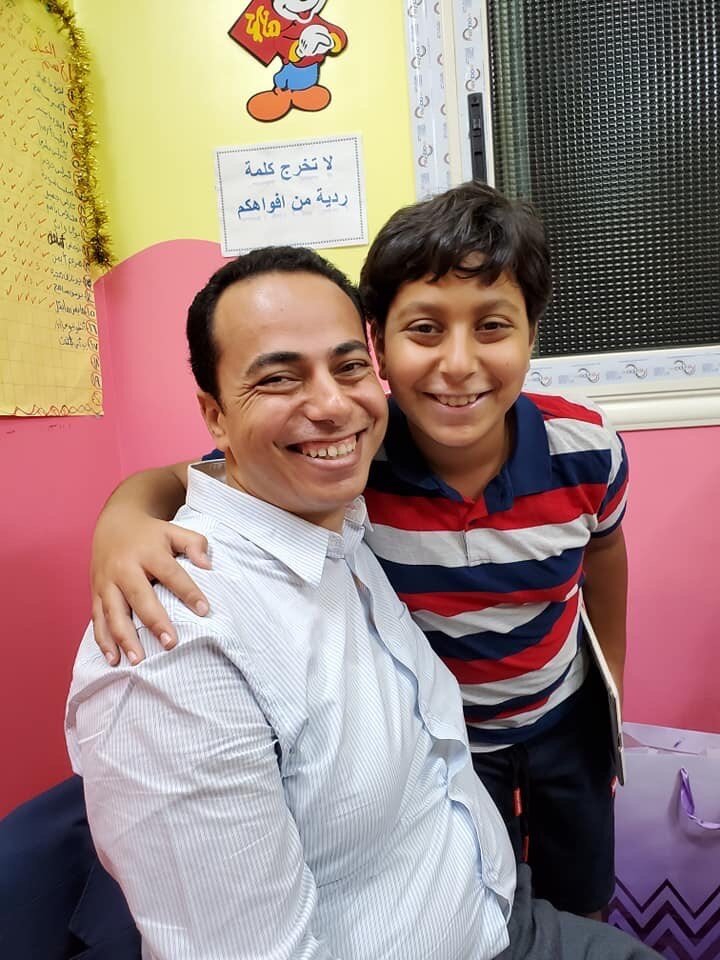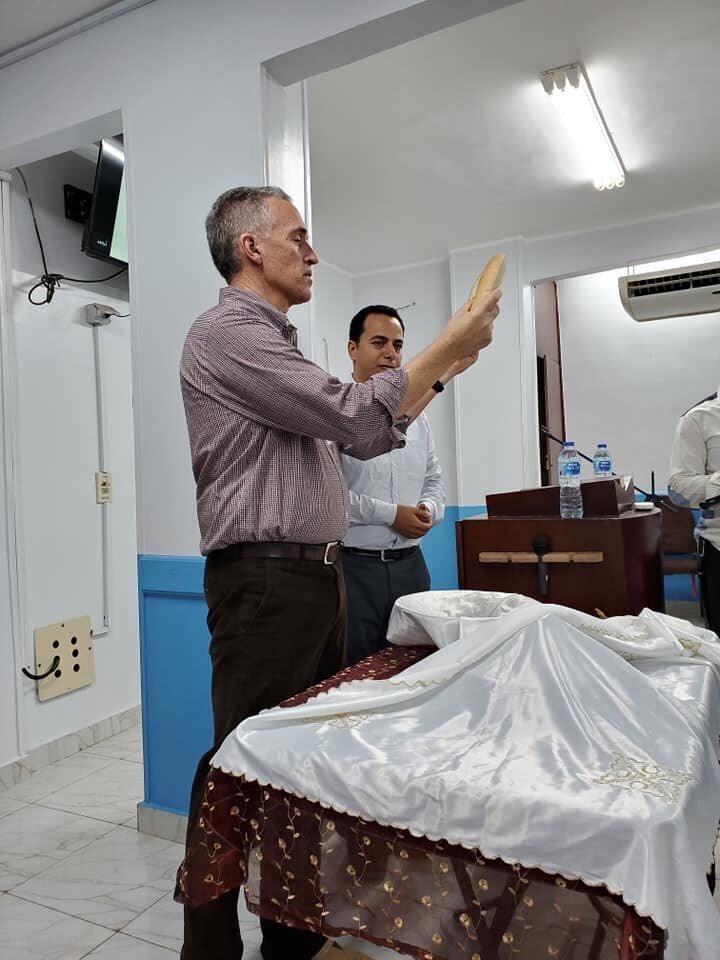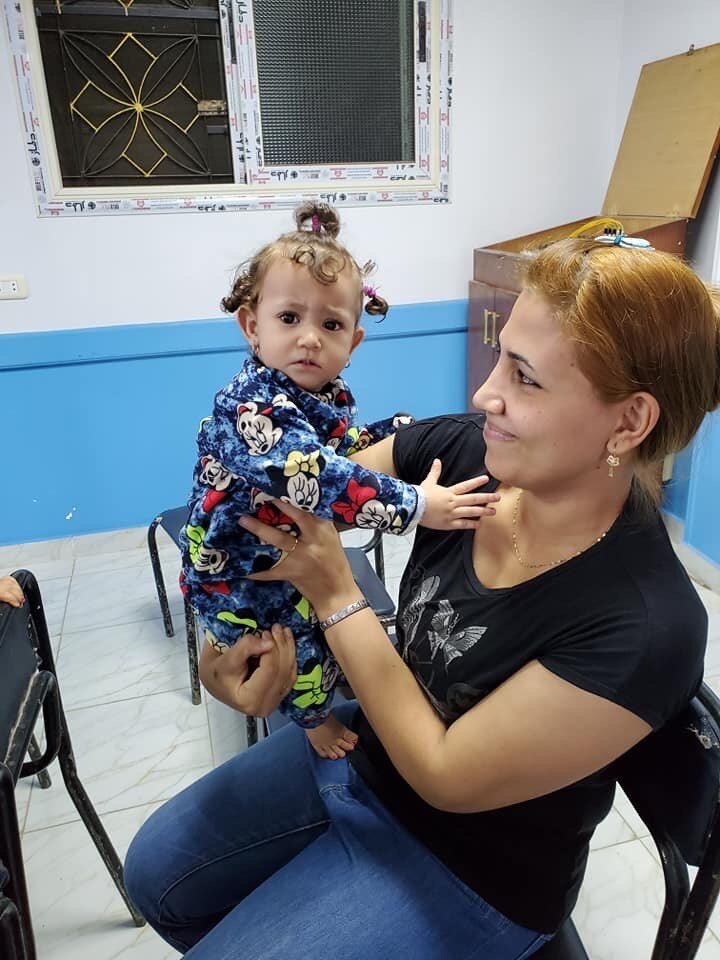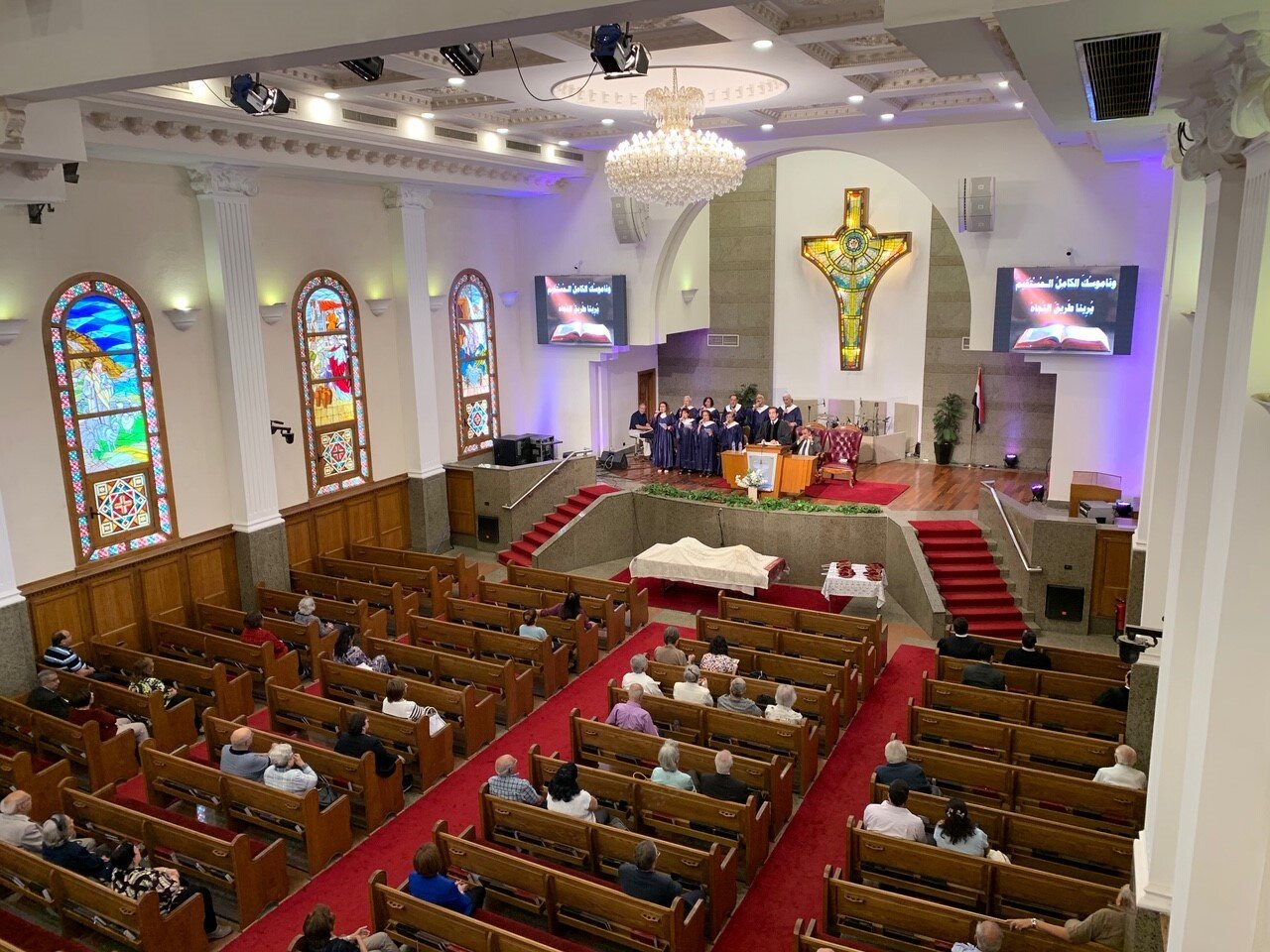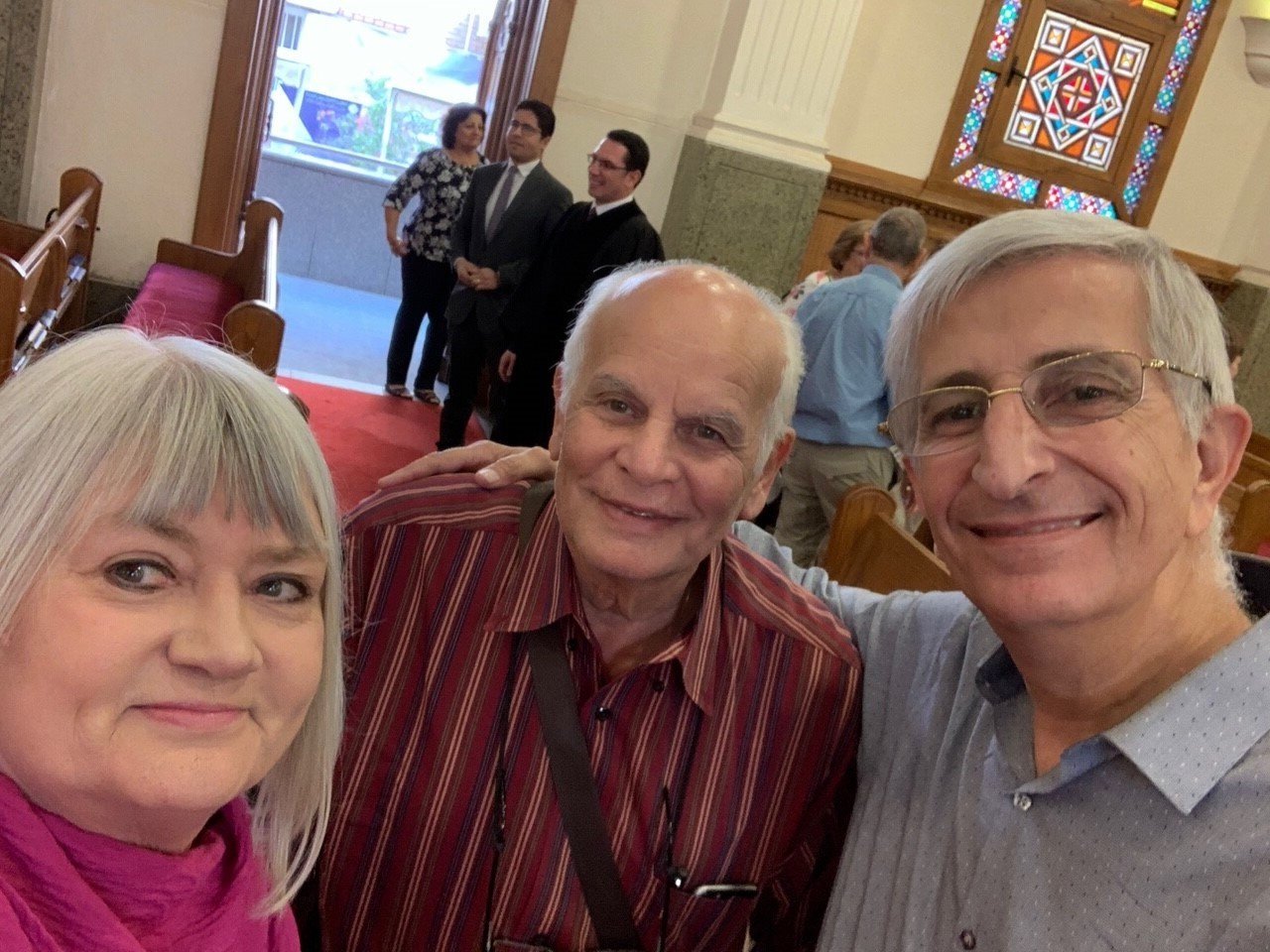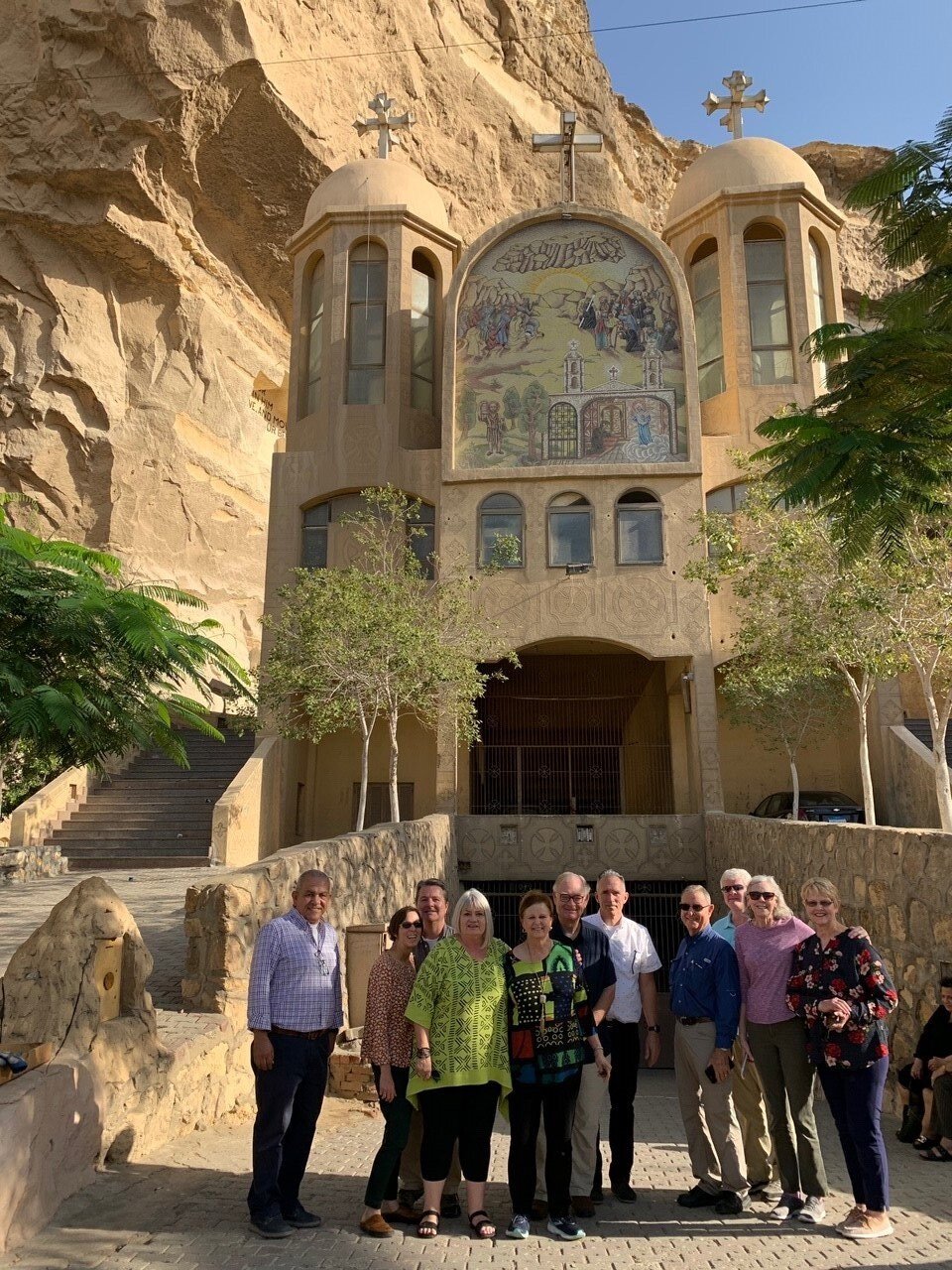Egypt #2: Lessons
by Mark Mueller
The Middle East has many lessons to teach the church. In Iraq, the church has remained the faithful remnant despite war, sanctions, and upheaval. In Lebanon, the church moves forward amid protests, poverty, and instability. In Syria, the church is rebuilding after invasion, strife, and migration. In each of these countries, the church has served as a model of resiliency and faithfulness.
The same could be said of Egypt. It is a country that most recently witnessed the revolution of 2011 that many refer to as the Arab Spring. However, here the church not only survives but thrives. The Presbyterian church is growing at an incredible pace and is quickly becoming a model for new church development and revitalization not only for the Middle East but also the world.
As our group of 17 from the States separated into three small groups to visit new church starts on Sunday, I had been selected to visit and preach at Embaba Presbyterian Church. Pastor John Samy and his congregation started this church in a poor part of town south of Cairo but north of the great Pyramids. In fact, the congregation bought a building that had been the location for drug problems and drug deals. The building is next to a house of prostitution that recently shut down. It is here we find the Egyptian Presbyterian Church in a newly renovated building complete with a pastor’s apartment on the top floor, a preschool on the second floor and worship area on the first floor. The church is soon to be licensed but is already full.
Upon our visit, we were greeted by members of the congregation and soon we engaged in a joyous and exciting worship service with communion. It was not my first time to participate in a thrilling worship service in Egypt. Frankly, it is much more the norm. Something is different here in Egypt. God seems very much on the move. The Spirit is so, so visible. I can feel this in the singing of the people and their listening to the Word of God.
I have pondered a question and asked it several times in Egypt. What is it that makes this such fertile ground for the work of God?
My ideas are still in the germination phase, but it has something to do with a thirst for God and a desire to give primary emphasis upon the Word of God. There is something being taught here. There is a lesson to be learned. Likewise, Egyptian Christians plant a church in a place where one might not choose to place one. One of the largest churches in Egypt is found in the poorest of poor places, the garbage dump where trash from 22 million people in Cairo is deposited. Here we find a planted church. Here we find the Cave Church that seats 20,000 people on Sunday morning. The smaller chapel is not but a few hundred yards away. It seats 3,000 comfortably in a carved-out location beneath a mountain. The church is growing rapidly in of all places, the slums.
There are other lessons. The head of staff at one of the largest, traditional Presbyterian churches (Heliopolis in downtown Cairo) met with us on Sunday. He and his four associate pastors not only care for 2,000 members but have started 7 other churches in Cairo. It is an incredible missional model for church planting.
The church is growing in Egypt because mission is part of the DNA of God’s people. Egyptian Christians are more than mission-minded. That term does not do justice to these people. They are missional first in everything they do because they have answered the basic question as to why the church exists.
The church does not exist for its members. The church exists for others. While we in the United States build the church and expect people to enter the doors, Egyptian Christians find the underserved people and place the church in the midst of these people. And when that portion of the teaching is embraced, dramatic events are realized and wonders take place much like that of the early church and most notably seen at Pentecost.

